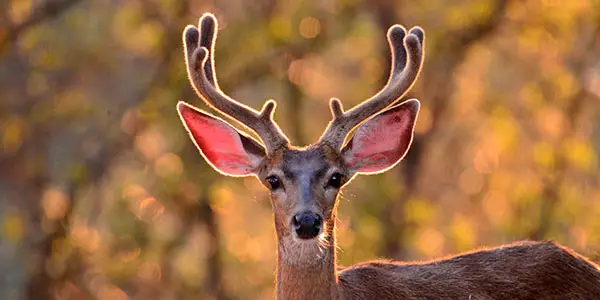The year 2025 might not have a zombie apocalypse in store, but scientists are sounding alarms over an unsettling discovery that could reshape how we view hunting, livestock, and public health. Chronic Wasting Disease (CWD), often dubbed “zombie deer disease,” has long been a concern among deer populations. Now, the disease has been found in wild pigs, raising fears that it could make the leap to humans.
This development has left researchers worried about the potential spread to domestic livestock and, eventually, to people. If that happens, we could be looking at a new, incurable disease with devastating consequences.
What Is Zombie Deer Disease?
Chronic Wasting Disease is a prion disease, meaning it’s caused by misfolded proteins that trigger a chain reaction, damaging the brain and other tissues. Symptoms in deer include confusion, drooling, motor dysfunction, and eventually death. The disease has a near 100% fatality rate in infected animals, and no cure exists.
The disease spreads through saliva, blood, urine, or feces, making it highly contagious among deer populations. To date, there’s no direct evidence of CWD infecting humans, but the discovery of the disease in pigs has heightened concerns.
The Alarming Leap to Pigs
Recent findings show that wild pigs, which often scavenge for food, can become infected by consuming the remains of diseased deer. Dr. Michael Osterholm, a leading infectious disease expert at the University of Minnesota, explained the implications in an interview with the Daily Mail.
“We have some limited data now suggesting that feral pigs might be infected. If they can get infected, surely it’s possible domestic swine could also become infected?” he noted.
This possibility is deeply troubling. Pigs and humans share significant genetic similarities, which could make the jump from pigs to humans more plausible. If the disease spreads to domestic pigs, the ripple effects could devastate the pork industry, livestock markets, and public health systems.
Cooking Won’t Save You
One of the most unsettling aspects of prion diseases like CWD is their resilience. Cooking meat doesn’t neutralize the infectious proteins; in fact, it may concentrate them. This makes traditional food safety practices ineffective in preventing potential transmission.
The Minnesota Department of Natural Resources has already issued warnings about the potential risks of consuming infected meat. While no human cases have been confirmed, Dr. Osterholm cautions that exposure to prions through consumption remains a serious concern.
“What we don’t understand yet is what it would take for that prion to actually infect a human with ingestion,” he said.
Why Scientists Are Worried
The leap to wild pigs is a critical turning point. Wild pigs often interact with humans and domestic livestock, serving as a potential bridge for the disease to enter the human population. The prospect of infected domestic pigs raises questions about food security, farming practices, and public health.
If CWD prions adapt to infect humans, we could face a disease with no treatment, no cure, and devastating societal impacts. Its potential spread via saliva, blood, or feces echoes themes from apocalyptic fiction, making the situation eerily reminiscent of scenarios portrayed in The Walking Dead.
What Can Be Done?
For now, hunters and consumers are urged to practice extreme caution. Key precautions include:
- Testing Meat: Have deer meat tested for CWD before consumption, especially if it comes from regions where the disease is prevalent.
- Avoiding Infected Animals: Refrain from eating meat from animals that appear sick or show symptoms of CWD.
- Staying Informed: Monitor updates from wildlife agencies and health authorities for the latest guidelines.
Public health officials and researchers are also working to better understand the transmission pathways and risks associated with CWD. Enhanced surveillance of both wild and domestic animal populations will be crucial in preventing a potential outbreak.
What Lies Ahead
While we’re not in a zombie apocalypse yet, the growing threat of Chronic Wasting Disease making the leap to humans is a sobering reminder of how interconnected ecosystems, livestock, and human health truly are. The discovery of CWD in wild pigs adds urgency to the need for action, from stricter wildlife management to intensified research efforts.
For now, the best defense is awareness and caution. As Dr. Osterholm warned, “These are huge issues,” and they could have far-reaching consequences if not addressed promptly.

